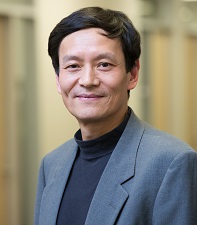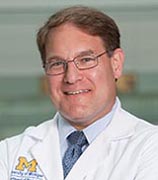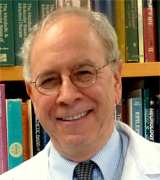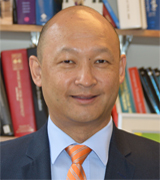 |
Alica M. Goldman, MD, PhD
Baylor College of Medicine
Morphometrics Analysis Core, Molecular Diagnostic Core
Dr. Alica Goldman is a neurologist and epileptologist with an active clinical practice attending to adult patients with epilepsy. She is an expert in translational genetic investigations of human epilepsies as evidenced by her collaborative research with the laboratory of James Lupski at the Department of Molecular and Human Genetics at Baylor. Her long-standing research interest rests in the translational genetic research of the frequent but poorly understood lethal complication of epilepsy, SUDEP.
|

|
Dr. Diehl is a Consultant Clinical Neurophysiologist at the National Hospital of Neurology and Neurosurgery in London. She is a Neurologist/Epileptologist and Clinical Neurophysiologist focusing on the presurgical evaluation of intractable epilepsy patients including intracranial EEG recordings. She is an expert in both the electrophysiology as well as the neuroimaging of patients with intractable epilepsy. The aim of her research is to precisely identify the autonomic and imaging biomarkers of SUDEP.
|

|
Dr. Richerson studies the role of serotonin neurons in mediating the effects of acidosis on brain function and behavior. He has shown that serotonin neurons are exquisitely sensitive to changes in pH. They are close to large arteries in the brain and contribute to the increase in breathing induced by increased CO2 levels (which indirectly decreases pH). They are also essential for the arousal from sleep that is induced by high CO2. His experiments are aimed at understanding the role of these effects in human conditions in which sudden death occurs, such as infancy (SIDS), epilepsy (SUDEP), and Parkinson's disease.
|
 |
Dr. Zhang is Vice President and Chief Data Scientist, UTHealth, Co-Director, Texas Institute for Restorative Neurotechnology, Professor of Medicine, Biomedical Informatics, and Public Health. His research interests are large-scale, multi-center data integration, biomedical ontology development, query interface design and information retrieval, and agile, interface-driven access-control- grounded software development.
|

|
Jack M. Parent, M.D., is Professor of Neurology, Director of the Neurodevelopment and Regeneration Laboratory, and Co-Director of the Comprehensive Epilepsy Center at the University of Michigan Medical School. His current research interests include neural stem cell transplantation to treat brain injury and neurodegeneration, and the modification of adult neural stem cells to promote brain repair after stroke or prevent epilepsy. He is an expert in SUDEP and is responsible for pioneering work in Dravet Syndrome, a high-risk epilepsy syndrome.
|

|
Dr. Isom is Professor in the Department of Pharmacology and the Department of Molecular and Integrative Physiology. Highlights of Dr. Isom’s research program at the University of Michigan include the discovery that sodium channel b subunits, in addition to functioning as ion channel modulators, are multi-functional cell adhesion molecules of the immunoglobulin superfamily that regulate neuronal migration, pathfinding, and fasciculation. She reported the first mutation in SCN1B linked to Dravet Syndrome in 2009 and is currently collaborating with Dr. Jack Parent and Dr. Miriam Meisler at UM to investigate SCN1A and SCN1B Dravet Syndrome mutations in human induced pluripotent stem cell neurons and cardiac myocytes.
|

|
Dr. Thom is an Academic Neuropathologist with a diagnostic and research interest in epilepsy. Common epilepsy-related pathologies studied include hippocampal sclerosis and cortical dysplasias, utilising surgical and post-mortem tissue samples in the established Epilepsy Tissue Bank within the department. Her projects include the neuropathology and patho-mechanisms of SUDEP .
|
 |
Dr. Nei has conducted research regarding various clinical aspects of epilepsy, epilepsy surgery, ketogenic diet treatment in epilepsy, maternal-fetal effects of seizures, brain tumors and seizures, and the effects of vagal nerve stimulation. She has also published several studies on the cardiac effects of seizures, the effects of seizures on the autonomic nervous system, and clinical consequences of seizures.
|

|
Dr. Devinsky is Professor of Neurology, Neurosurgery, and Psychiatry at NYU School of Medicine. He directs the NYU Comprehensive Epilepsy Center and the Saint Barnabas Institute of Neurology and Neurosurgery (INN). Dr Devinsky started the North American SUDEP Registry and has had a pivotal role in legislation for SUDEP autopsy in several states. His epilepsy research interests include quality-of-life, cognitive and behavioral issues in epilepsy, surgical therapy, and new medications. He has published widely in epilepsy and behavioral neurology, with more than 250 articles and chapters and more than 20 books and monographs. He has chaired several committees of the American Epilepsy Society and has served as a Board member. He is active in the American Academy of Neurology and the Epilepsy Foundation. He is the Co-Editor of Reviews in Neurological Diseases, Epilepsy and Behavior, and Epilepsy.com, and serves as a reviewer for more than 30 journals.
|

|
Dr. Harper is an expert in autonomic function and in the neuroimaging of conditions linked to sudden death. Research interests include the determination of neural mechanisms that underlie the control of breathing and cardiovascular action during sleep and epilepsy. His laboratory examines these mechanisms through basic studies of neural functioning in animals and physiological and neural imaging studies of humans with normal and disordered breathing during sleep.
|












